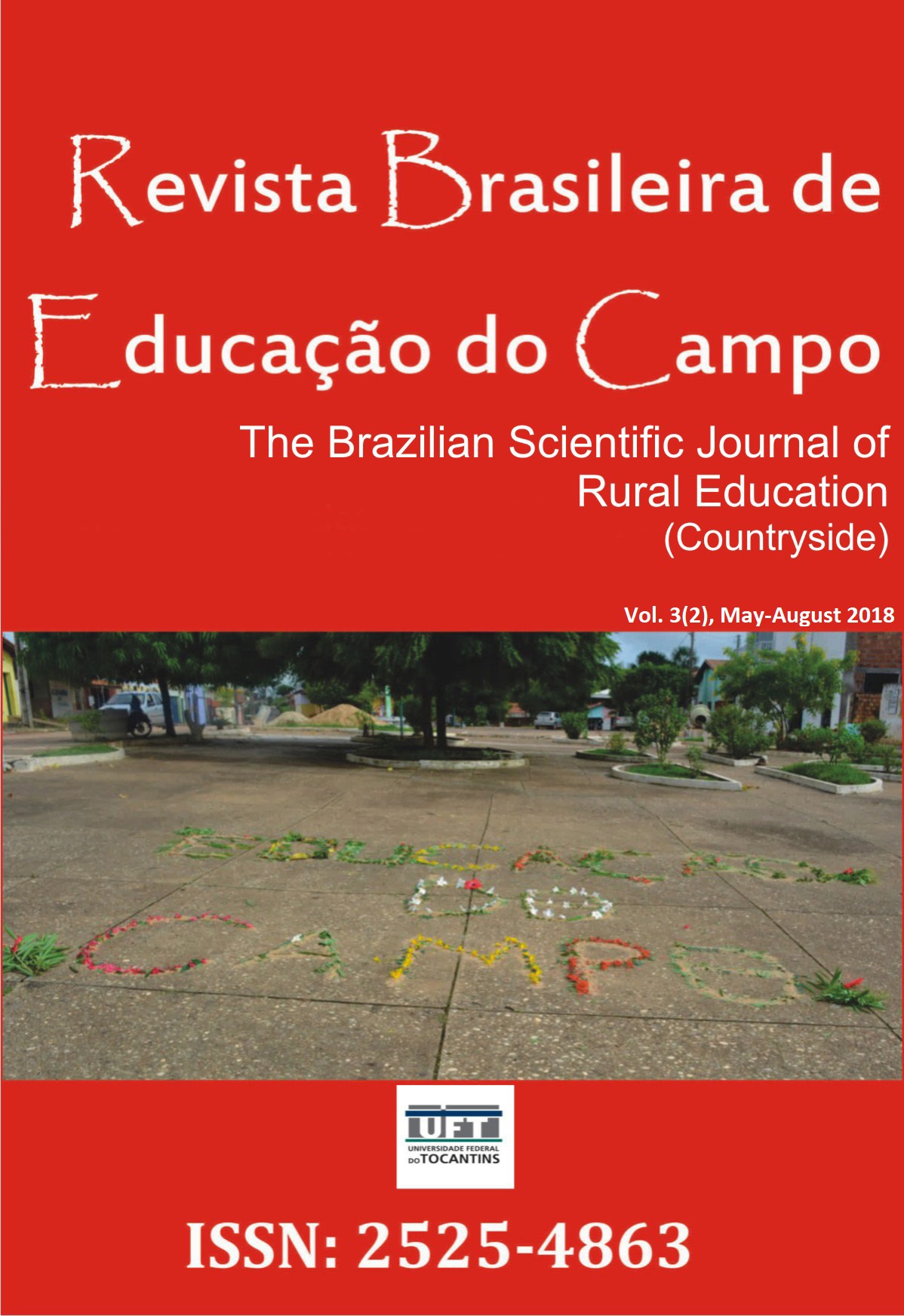Rural Education and Autonomy: community development and pedagogy of participation in the Settlement of the Landless Movement [MST], Luís Inácio Lula da Silva (Lulão)
DOI:
https://doi.org/10.20873/uft.2525-4863.2018v3n2p381Abstract
ABSTRACT. This article seeks to present the role of Rural Education in the process of training autonomous subjects, based on a study carried out in a settlement of the Landless Movement in the South of Bahia, which sought to understand how development indicators reflect the degree Autonomy of its residents. The research was carried out through the qualitative research, with the questionnaire, semi-structured interviews and focus groups as instruments of information collection. Here autonomy is defined as the capacity of the individual to govern himself, according to a law of his own, in a free and rational way, leading him to human dignity; Setting itself up as a powerful resource capable of freeing individuals not only from submission to heteronymous processes that interfere with their freedoms of choice and action, but also from the frameworks of social and economic vulnerability. Having more autonomy and acting with greater freedom of thought and action improves people's potential to take care of themselves and to influence the world - issues central to the development process. To empower autonomy, education plays a fundamental role in the universe and in the population studied, taking place in the praxis of everyday life, in the exercise of citizenship and in social participation, consolidating itself as a practice of freedom.
Downloads
Veröffentlicht
Zitationsvorschlag
Ausgabe
Rubrik
Lizenz
Creative Commons Attribution License
Creative Commons Attribution License
Proposal for Copyright Notice Creative Commons
1. Policy Proposal to Open Access Journals
Authors who publish with this journal agree to the following terms:
A. Authors retain copyright and grant the journal right of first publication with the work simultaneously licensed under the Creative Commons Attribution License that allows sharing the work with recognition of its initial publication in this journal.
B. Authors are able to take on additional contracts separately, non-exclusive distribution of the version of the paper published in this journal (ex .: publish in institutional repository or as a book), with an acknowledgment of its initial publication in this journal.
C. Authors are permitted and encouraged to post their work online (eg .: in institutional repositories or on their website) at any point before or during the editorial process, as it can lead to productive exchanges, as well as increase the impact and the citation of published work (See the Effect of Open Access).














